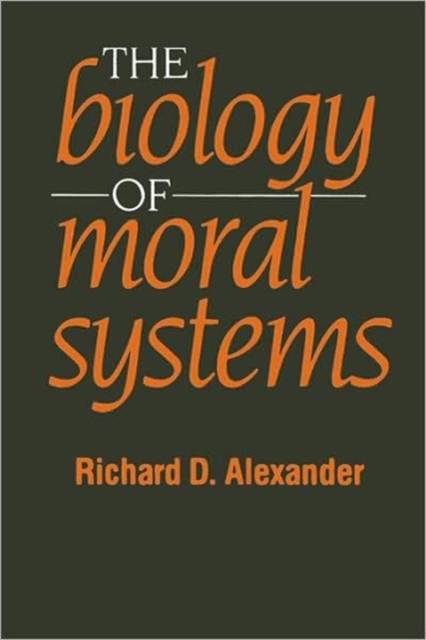
- Retrait gratuit dans votre magasin Club
- 7.000.000 titres dans notre catalogue
- Payer en toute sécurité
- Toujours un magasin près de chez vous
- Retrait gratuit dans votre magasin Club
- 7.000.0000 titres dans notre catalogue
- Payer en toute sécurité
- Toujours un magasin près de chez vous
Description
Despite wide acceptance that the attributes of living creatures have appeared through a cumulative evolutionary process guided chiefly by natural selection, many human activities have seemed analytically inaccessible through such an approach. Prominent evolutionary biologists, for example, have described morality as contrary to the direction of biological evolution, and moral philosophers rarely regard evolution as relevant to their discussions.The Biology of Moral Systems adopts the position that moral questions arise out of conflicts of interest, and that moral systems are ways of using confluences of interest at lower levels of social organization to deal with conflicts of interest at higher levels. Moral systems are described as systems of indirect reciprocity: humans gain and lose socially and reproductively not only by direct transactions, but also by the reputations they gain from the everyday flow of social interactions.The author develops a general theory of human interests, using senescence and effort theory from biology, to help analyze the patterning of human lifetimes. He argues that the ultimate interests of humans are reproductive, and that the concept of morality has arisen within groups because of its contribution to unity in the context, ultimately, of success in intergroup competition. He contends that morality is not easily relatable to universals, and he carries this argument into a discussion of what he calls the greatest of all moral problems, the nuclear arms race."Crammed with sage observations on moral dilemmas and many reasons why an understanding of evolution based on natural selection will advance thinking in finding practical solutions to our most difficult social problems." û Annals of the American Academy of Political and Social Sciences Richard D. Alexander is Donald Ward Tinkle Professor of Evolutionary Biology, Department of Biology, and Curator of Insects, Museum of Zoology, University of Michigan. A recipient of numerous awards, Dr. Alexander is the author of Darwinism and Human Affairs.
Spécifications
Parties prenantes
- Auteur(s) :
- Editeur:
Contenu
- Nombre de pages :
- 324
- Langue:
- Anglais
- Collection :
Caractéristiques
- EAN:
- 9780202011745
- Date de parution :
- 30-12-87
- Format:
- Livre broché
- Format numérique:
- Trade paperback (VS)
- Dimensions :
- 153 mm x 228 mm
- Poids :
- 449 g

Les avis
Nous publions uniquement les avis qui respectent les conditions requises. Consultez nos conditions pour les avis.






